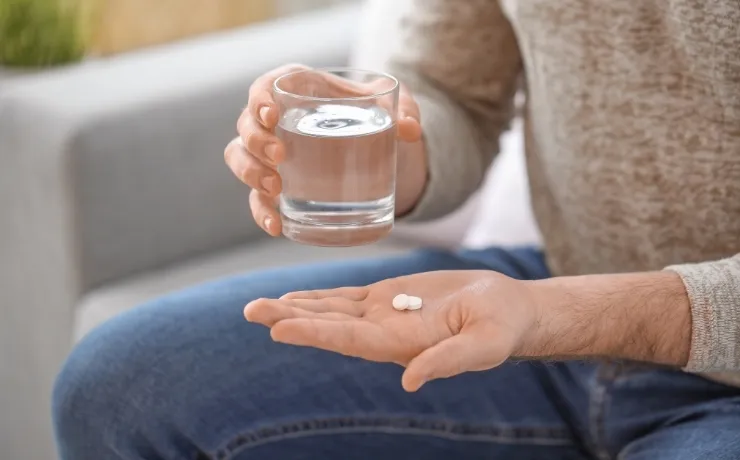Missed a Dose? Here’s What Happens and What to Do

We all know how easy it is to miss a dose of medication, whether it’s due to a busy schedule, a vacation, or just forgetting. However, it’s important to understand what happens when you miss a dose and how to handle the situation properly. At Farmington Drugs, we’re here to provide guidance to ensure that missed doses don’t affect your health or treatment plan.
In this blog post, we’ll explain why missed doses matter, what to do if you forget to take your medication, and the best practices for managing your medications.
Why Missing a Dose Can Matter
Taking your medications as prescribed is crucial for achieving the best possible results from your treatment. Missing a dose can affect the effectiveness of the medication, and in some cases, it can worsen your condition or lead to side effects. The specific consequences depend on the type of medication you’re taking and the condition being treated.
Here’s why missed doses can be problematic:
-
Reduced Effectiveness: Medications work best when they’re taken consistently, at the correct times, and in the proper doses. Missing a dose can reduce the medication’s effectiveness.
-
Compromised Treatment Outcomes: For conditions like high blood pressure, diabetes, or infections, missing doses could result in the treatment not working as intended.
-
Increased Risk of Side Effects: Some medications need to be taken regularly to maintain a certain level in the bloodstream. If the medication level drops due to missed doses, it could trigger unwanted side effects when you resume your regular dosage.
-
Relapse of Symptoms: Some chronic conditions may require a steady intake of medication to keep symptoms under control. Missing a dose could cause your symptoms to return or worsen.
What to Do If You Miss a Dose
If you realize you’ve missed a dose, don’t panic. There are simple steps you can follow to get back on track with your medication regimen. The best course of action depends on the type of medication you’re taking and how much time has passed since you missed your dose.
1. Check the Instructions on Your Medication Label
Many prescriptions come with specific instructions on what to do if you miss a dose. For example, your medication may say something like, “Take the missed dose as soon as you remember, unless it’s almost time for your next dose.” Always refer to the label and follow the instructions provided by your healthcare provider or pharmacist.
2. Take It as Soon as You Remember
If you’ve missed a dose and it’s still within a reasonable time frame, take it as soon as you remember. For example, if you forgot to take your medication in the morning but remember later in the day, take it unless your next dose is already due. However, don’t take two doses at once to make up for a missed dose unless advised by your healthcare provider.
3. Skip the Missed Dose If It’s Almost Time for the Next One
If it’s nearly time for your next dose, skip the missed dose entirely and take your next scheduled dose as usual. Taking double doses can be harmful and may increase the risk of side effects.
4. Don’t Take More Than the Prescribed Amount
It’s important to stick to the prescribed dosage. Taking more than one dose at a time, even if you missed a dose, can lead to an overdose or an increase in side effects. Always consult your pharmacist or doctor before making changes to your medication regimen.
5. Set a Reminder for Future Doses
To avoid missing doses in the future, consider setting reminders on your phone or using a medication management app. You can also set up a medication schedule or use a pillbox to keep track of when to take your medicine. Consistency is key to successful treatment, so establishing a routine will help you stay on track.
When to Contact Your Doctor or Pharmacist
If you miss a dose and are unsure of what to do, or if you’re experiencing unusual side effects, contact your healthcare provider or pharmacist for advice. They can help guide you on how to proceed based on the medication you’re taking and the specific situation.
Additionally, if you find that you’re consistently missing doses due to issues like forgetfulness, difficulty with the medication’s administration, or side effects, it’s important to discuss this with your doctor. They may be able to adjust your treatment plan to make it easier for you to follow.
Best Practices for Managing Your Medication
Here are a few tips to help you stay on top of your medication regimen and avoid missing doses in the future:
-
Use a Pill Organizer: A pill organizer with compartments for each day of the week can help you keep track of your doses and ensure you’re taking your medication as prescribed.
-
Set Alarms or Reminders: Set an alarm on your phone or use a medication reminder app to remind you when it’s time to take your medication.
-
Create a Medication Routine: Take your medication at the same time each day, perhaps when you’re brushing your teeth or having a meal. Consistency is key.
-
Request Automatic Refills: Ask your pharmacy to set up automatic refills so you never run out of your medication.
-
Use a Medication Management Service: Some pharmacies, including Farmington Drugs, offer medication management services to help you stay on track with your medications. These services may include blister packs, where your medication is pre-packaged and organized by dose, or personal reminders from your pharmacist.
Conclusion
Missing a dose of medication happens to the best of us, but it’s important to take the right steps to ensure you’re still getting the full benefit of your treatment. By following the advice above and maintaining open communication with your healthcare provider or pharmacist, you can prevent missed doses from interfering with your health.
At Farmington Drugs, we are committed to helping you stay on track with your medications. If you ever have any questions about missed doses or need assistance with your medication regimen, don’t hesitate to contact us. We're here to support your health every step of the way.





